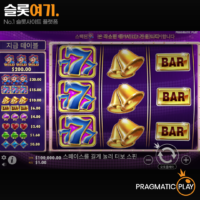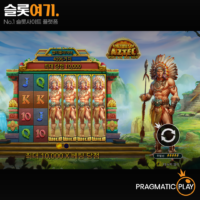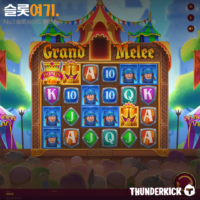Analyzing casinos with math? It might seem complicated and difficult at first. But if you’ve been following our series The Mathematics of Games and Gambling, you know that math is not just a tool for calculations, but a weapon that allows you to “judge” and “moderate” your gambling.
For those of you who have been following along, here’s a recap of the series so far.
Think in terms of expectations
For every gambling game, you can calculate how much you win or lose on average per hand. This is the expected value, and for most casino games, this value is negative.
What is expected value? Expected value is a mathematical concept that predicts the long-term average outcome by summing the product of probability and reward. For example, imagine a game where you flip a coin and win 2,000 won if it lands on heads and lose 1,500 won if it lands on tails. The expected value of this game is: > (2,000 × 0.5) + (-1,500 × 0.5) = 1,000 – 750 = 250
This game has an expected value of 250, meaning you can earn an average of 250 cents per hand. However, casino games are different. Every game in a casino is designed to disadvantage the player through a concept called the house edge. This house edge is inherent in the rules of the game itself, making the expected value negative no matter what bet you place. For example, the 0 (zero) space in roulette or the internal odds of a slot machine are prime examples of house edges. The habit of asking “How much will this game cost me in the long run?” rather than “Could I win?” is the foundation of being a profitable player.
See structure instead of emotion
The reason you’re screaming “just one more” at a slot machine is because your brain is tricked by a “variable reward schedule.” Because you don’t know when the reward is going to pop, your brain’s dopamine circuits are activated more strongly. This makes it even more addictive than when the reward is fixed.
The book mathematically explains even this psychological structure and makes you look at gambling as a system, not just a behavior.
This psychological trap also includes the Gambler’s Fallacy. It’s the idea that “if I keep losing this time, I’m sure to win next time.” But like flipping a coin, each attempt is a completely independent event, and the previous result has no influence on the next.
The similar Confirmation Bias causes us to only take in information that supports our desired outcome and ignore information about losses. This book analyzes these psychological traps we instinctively fall into from a mathematical perspective and teaches you how to make rational decisions without letting your emotions get the best of you.
System bets don’t change the game
There are many ways to bet, including martingales, cancellation strategies, and more, but as long as the odds don’t change, the outcome will be the same no matter what order you place your bets. Accepting this simple truth is the first step to being smart at gambling.
Take the most famous system bet, the Martingale strategy, for example, which involves doubling your bet every time you lose a game, so that you only need to win once to make up for all your losses and gain as much as your initial bet. In theory, if you have infinite capital, this strategy will always work.
But the reality is different. Casinos have table limits, and your bankroll is finite. A few bad losses in a row can exponentially increase your wager and leave you broke in no time.
System betting cannot change the mathematical expectation value, and will only serve to accelerate the player’s eventual bankruptcy. This shows that just as lotteries have a negative expectation value, betting systems cannot change a structure that is inherently unfavorable to the player.
Except for games with changing odds
The book says that blackjack is the only game that has a “structure where the odds can change”. This is why card counting is possible, and why it’s actually been shown to be profitable. This means that for a mathematical strategy to work, it must have a structure that changes the odds.
How does card counting work? Blackjack is played with the remaining deck of cards, excluding those that have been played, meaning that the odds of the next game change based on the outcome of the previous game.
Card counting is a strategy that utilizes this principle, most notably the “high-low system,” where you assign each card a value of +1, 0, or -1, and figure out the ratio of “high” to “low” cards left in the deck.
- +1: 2, 3, 4, 5, 6 (low card)
- 0: 7, 8, 9
- -1: 10, J, Q, K, A (high card)
If you believe that there are a lot of high cards left in the deck (a high count), the odds are in your favor, so you increase your bet to make your expected value positive. Conversely, if we believe there are many low cards, we decrease the bet amount or abandon the game.
However, counting cards requires a high level of concentration, and casinos disrupt the counting process by shuffling the deck frequently or using multiple decks. We’ll discuss how mathematical strategies work in games with shifting odds, but they’re very difficult in the real world.
In the end, what this book taught me
Gambling is not luck, it’s math.
Math is not a formula, it’s a judgment call.
Profit comes from moderation, not jackpots.
“The Mathematics of Games and Gambling is a book that teaches us “how not to lose” rather than “how to win.” Its message goes beyond just how to win at gambling, and can be applied to many of life’s important moments.
- The importance of expectations: Just as a casino game has a negative expected value, every choice we make has a positive or negative expected value. When you make any investment or start a business, you can get in the habit of mathematically determining what the long-term consequences of your decision will be.
- Overcome psychological biases: Understanding the gambler’s fallacy or confirmation bias can help you avoid irrational decisions that we are prone to make in our daily lives. It trains you to think based on objective data and probabilities instead of letting your emotions get the best of you.
- Recognize the limitations of your system: Just as a betting system can’t change the nature of gambling, no “success formula” or “easy way” in the world can transcend its structural limitations. Stay on top of ever-evolving technologies and strategies, but understand their essential rules – that’s where the real insight lies.
If you’ve learned from this series that learning casino math is all about developing judgment and discipline, you’ve already won half the battle.
This concludes the series. Thank you so much for following along and reading this far. Whether you gamble or not, probabilistic thinking will help you in many moments of your life.



![[Slot Review] Lion Saga Odyssey – Play’n Go](https://tabletalegames.com/wp-content/uploads/2025/01/Lion-Saga-Odyssey-200x200.png)

